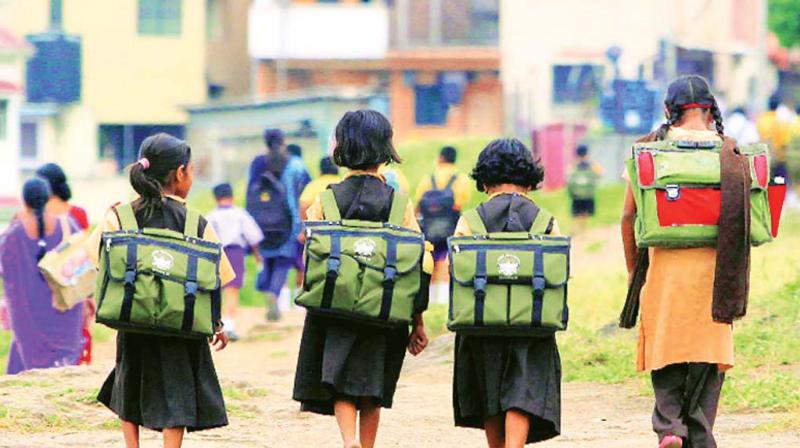Guest column: Current scholarships too meagre to offset child labour'

50% of the children in India drop out before reaching Class 8, according to NCERT. This, despite education for children between 6 to 14 years being made a Fundamental Right in 2009 by the insertion of Article 21A under Article 21 of the Constitution, the very Right to Life. So, any child out of school is being deprived of its very Right to Life, ensuring which is the duty of the State. But has the situation on the ground changed as a result of education being elevated to the status of a Fundamental Right? Sadly, no. It is still ‘business as usual’ as even today, ‘Compulsory’ is being understood as mere ‘Persuasion’ and if persuasion fails, the child is allowed to stay out of school. No official is held responsible for this violation of the child’s Right to Life and none is punished for it under the Right to Education Act.
As a result of a suo motu PIL taken up by the Karnataka High Court in 2013, specific officials have been designated as Attendance Authorities and are to be held accountable for retaining every child in school. A protocol has been developed for them which includes measures to ensure that the economic, social and cultural barriers that prevent a child from attending school are overcome, which are missing in the RTE Act. These measures, in tune with the requirements of the UN Convention on the Rights of the Child, have been included in Karnataka’s RTE Rules for the first time in the country. But it needs citizens’ and community pressure to ensure that the protocol is followed and officials are held accountable.
Further, compulsory education should be extended up to 18 years along with a vocational stream so that parents are assured that the child will get a skilled job at the end of compulsory education. But current scholarships are too meagre to off- set the opportunity cost of child labour. If a lump-sum of about Rs. 1 lakh is assured to every vulnerable child at 18 years in addition to scholarships, on condition that it undergoes 12 years of education, it will be possible to have a completely educated and skilled workforce within 12 years. Only then will ‘Skill India’ and ‘Digital India’ have meaning.
Kathyayini Chamaraj, Executive Trustee, CIVIC Bangalore.

